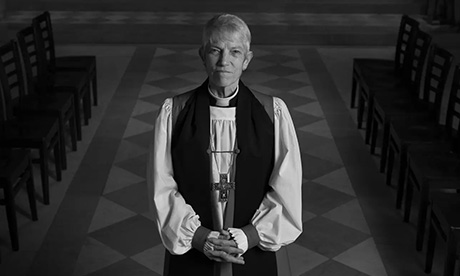There’s no doubt Covid changed the clergy. In New York, anyway.
During the deadliest months of the coronavirus pandemic, when many New Yorkers most needed their faith communities, houses of worship were either closed or operating with limits on attendance.
The solace of grieving with family and friends, the comfort of the communal rituals of prayer and the joys of ceremonies celebrating births and weddings, were missing.
The absence took a deep physical, spiritual and emotional toll — not only on the faithful but also on clergy members who struggled to serve worshipers from afar. Congregants’ needs were unending.
The ability of clergy to respond was at times limited by disease, distance and the number of hours in a day.
Priests, rabbis, imams and ministers leaned on the teachings of their faiths to comfort their flocks, and themselves.
They also employed modern technology, including Facebook Live and Zoom, to pray with congregants safely.
This month, Ramadan, Easter Week and Passover overlap, and New Yorkers are gathering at their houses of worship, many for the first time in two years, now that many Covid-19 restrictions have been lifted.
And although some houses of worship appear to be returning to a semblance of normalcy, conversations with clergy members revealed the profound ways in which the pandemic has altered their lives and their work.
My grandmother would say that “trouble will call you to your knees.” It will change your position. Covid certainly called us to our knees.
Even while churches were closed, churches started to grow.
More people tuned in online, including the spiritual but not religious.
They were looking for answers and felt like those answers weren’t necessarily found in the traditional places of worship.
There was certainly a coming home — a calling to invest in our own spiritual growth and to really ask the hard questions.
What am I doing?
Why am I here?
And why was I spared?
While there’s been so much death and so much grief and so much sickness and so much mourning, Covid has also given us some gifts.
The gifts of reimagining worship, of recognizing that the spirit of God is within and that we’re connected by our humanity, by our breath, and not only by a pew or a temple or a synagogue or a mosque or a church.
It’s helped us to reimagine what it looks like to be in ministry and to reimagine a future that can be even more inclusive.
It is wonderful to be able to gather in person again in communal worship, but there are folks who haven’t come back into church because of this continued evolving of Covid. It’s not over.
I will always remember the last Mass on Sunday, March 15, 2020, because it was like a funeral.
The parishioners were crying and crying. The churches closed the next day because of Covid, and people were knocking on the doors out of fear.
I remember being very disturbed by the feeling of not knowing what to do.
That Holy Week of 2020 was the first in history without the public. It was terrible celebrating all the rites with the church empty.
But it meant a new opportunity to rediscover my faith because of all the limitations, and the problems compelled believers to understand that faith was something even deeper.
And we had much more time for prayer and a very, very deep need. There were so many deaths here in Corona, often several people from the same family.
I think now, after two years, that the faith of the people is stronger.
I see a rebirth. People understand the value of the Eucharist and of a very personal relationship with God.
And we realize that everything we do affects our neighbours and can even mean death or life in certain cases. We belong to a family, to a community, that is one body, always connected.
I realized just how fortunate I am to be part of a community that is very caring and generous. At the onset of the pandemic, New York City’s systems were being overwhelmed.
My students, and our broader community, recognized that our role wasn’t merely to sit at home and do nothing.
Over the course of the pandemic, we’ve probably raised, as a centre, over $7 million in Covid relief funds.
We ran campaigns to raise funds to support people of any background with micro-cash grants.
We collected masks and gloves to distribute to hospitals and ran crowdfunding campaigns to help with funeral costs.
We supported survivors of abuse who were stuck at home with their abusers. Read more
